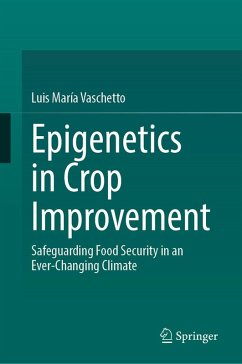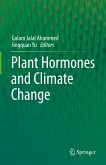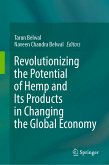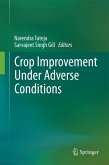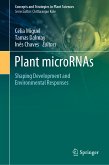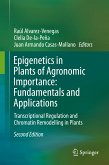Epigenetics encompasses all changes in gene expression that occur without alterations to the DNA sequence. These modifications involve DNA methylation, histone modifications, and ncRNA pathways. Plants have evolved remarkable resilience to environmental challenges mediated by epigenetic modifications rather than genetic variation. Epigenetic variation provides a means for designing crop varieties with enhanced resilience to abiotic stresses, such as drought, salinity, and extreme temperatures. By understanding how epigenetic information systems interact among them and with other canonical genetic pathways, we can develop crops better equipped to withstand the challenges of climate change, ultimately contributing to global food security.
Epigenetics in Crop Improvement: Safeguarding Food Security in an Ever-Changing Climate is primarily a comprehensive guide that explores the role of epigenetics in plant growth, development, and adaptation. This book also offers a valuable resource for anyone looking to investigate and develop innovative strategies for enhancing crop resilience and productivity in the face of climate change.
Dieser Download kann aus rechtlichen Gründen nur mit Rechnungsadresse in A, B, BG, CY, CZ, D, DK, EW, E, FIN, F, GR, HR, H, IRL, I, LT, L, LR, M, NL, PL, P, R, S, SLO, SK ausgeliefert werden.

